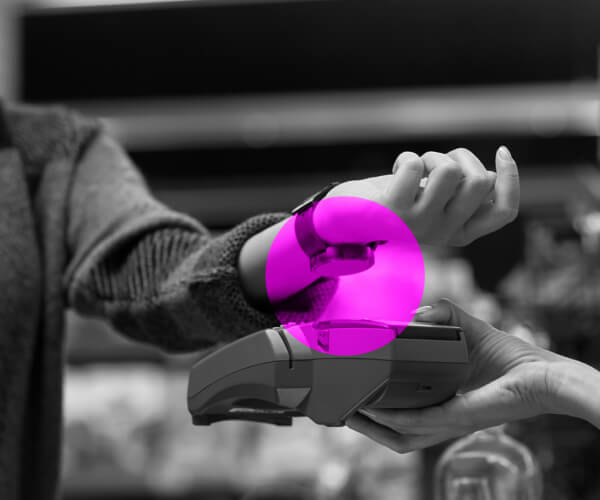Private label products have evolved far beyond their generic roots. Today, they’re defining a new era of retail branding, one in which design, quality, and storytelling are as critical to success as price. From baby food to beauty, consumers are embracing store brands with confidence, and the numbers tell a compelling story.
Private Label Sales Are Surging
According to the Private Label Manufacturers Association (PLMA), sales of private label grocery brands in the U.S. grew 3.9% in 2024, significantly higher than the 1.0% growth of national brands. That’s a $271 billion category, with one in every four grocery items sold now being a private label product.
The runway for growth remains long. U.S. private label market share stands at 22%, compared to 44% in the UK, 46% in Spain, and a staggering 52% in Switzerland. At the current pace (+5.3% YoY), the U.S. market is poised to keep climbing.
This momentum is no longer fuelled solely by inflation and price sensitivity. Years of investment in branding, quality, and storytelling have paid off: consumers now recognize that private label brands can match—or even surpass—national brands. Today’s shoppers, especially Millennials and Gen Z, are label-agnostic and driven by a savvy blend of value and quality. Private label products deliver on value, at 22% cost savings vs. national brands, but their success is increasingly driven by perceived quality, trust, and design sophistication.
Packaging Is a Key Growth Lever
 Retailers today understand that to compete, packaging design must do more than contain a product—it must inspire confidence, communicate value, and convey brand identity. When I visited the Velocity Store Brands Conference in May this year, I was able to observe the latest packaging trends:
Retailers today understand that to compete, packaging design must do more than contain a product—it must inspire confidence, communicate value, and convey brand identity. When I visited the Velocity Store Brands Conference in May this year, I was able to observe the latest packaging trends:
-
Premiumization of design: Brands like Target’s Good & Gather and CVS’s Well Market have introduced elevated visual systems with clean aesthetics, custom illustrations, and design-forward typographies.
-
High-emotion categories: Private label is growing fastest in categories like baby food, pet, and skincare—areas where packaging and perceived trust are paramount.
-
Sustainability as a design priority: With growing attention to eco-conscious consumers, store brands are exploring recyclable materials, minimalist design, and clean-label cues.
These design choices are working. Private brands are now perceived as lifestyle alternatives—not compromises. Consumers are choosing them based on design, quality, and innovation—not just price.
The Blind Spot: Testing at Scale Is Still Missing
Despite the high stakes, many retailers aren’t testing their packaging designs at the SKU level. Why? Because scaling traditional testing across thousands of products—especially after launching a new Brand Identity System—is often time-consuming, cost-prohibitive, and operationally unrealistic. Retailers therefore typically approve the brand system design upfront and then cascade it across product lines—without validating if the final pack works well in its individual shelf context.
This is a huge risk. In increasingly competitive categories, packaging is make-or-break. An underperforming pack can mean lost sales—even if the product quality is excellent.
Enter Pack.AI: The Smart Solution to Scale Pack Testing
This is where next-gen solutions like Behaviorally’s Pack.AI come in. AI-powered packaging assessment platforms enable scalable, fast, and cost-efficient validation of final pack designs, even across massive SKU counts. Unlike traditional methods, AI can simulate shelf environments, assess attention drivers, and optimize visual hierarchy in real time.
.png?width=400&height=335&name=Untitled%20design%20(34).png) Key benefits of Pack.AI for private label growth:
Key benefits of Pack.AI for private label growth:
-
Speed to market: Aligns with the retail mantra of “speed, speed, speed” while maintaining quality and precision.
-
Scale with confidence: Validate design consistency and effectiveness across thousands of SKUs—without manual bottlenecks.
-
Cost efficiency: Unlimited testing of SKUs within a subscription pricing model. Cost per test becomes incredibly efficient, removing financial barriers to widespread validation.
-
Boost competitive edge: Ensure each pack performs in its specific shelf context, especially crucial in visually dense, emotional categories like pet care, wellness, and baby.
Why Retail Teams and Design Agencies Should Act Now
Retailers often partner with design agencies to bring their Brand Identity Systems to life, and this partnership is more critical than ever. Pack.AI offers a game-changing advantage not just at the execution stage—but much earlier, during the concept and development phase of packaging design.
By integrating Pack.AI into early-stage creative workflows, agencies and internal teams can rapidly test and iterate on design directions with AI-led accuracy, helping to guide choices around layout, hierarchy, shelf impact, and visual appeal. This ensures that design decisions aren’t just on brand —they’re data-informed, to help optimize designs for at shelf performance, with speed.
This is a key opportunity for design partners to bring added value to their partnership with retailers. With Pack.AI, they can deliver smarter, faster, and more effective design solutions -- ensuring packaging performs from the start.
Final Word: Win on Shelf. Win with Pack Testing
Private label has become a powerful competitive advantage for retailers—and consumers are responding with enthusiasm. But success at the shelf can’t rely on price alone or hope that design hits the mark. Every SKU needs to tell a compelling story, break through visually, and drive purchase decisions. In this landscape, packaging design is a critical growth lever, and pack testing—when done intelligently and at scale—must be a strategic necessity, not an afterthought.
If you’re a retailer, a design partner, or part of a private brand consultancy, the time to rethink your approach is now. Private label is winning—but only those who invest in intelligent packaging validation will stay ahead of the curve.
THE AUTHOR
 Peter Cloutier is Director of Growth & Commercial Strategy at Behaviorally, helping to bring marketers the solutions they need to grow conversion to purchase, both in-store and online. Peter brings decades of experience in uncovering actionable consumer and shopper insights, with prior leadership roles at firms including ChaseDesign, Epsilon’s Commerce Agency, Catapult Marketing, and Ogilvy & Mather.
Peter Cloutier is Director of Growth & Commercial Strategy at Behaviorally, helping to bring marketers the solutions they need to grow conversion to purchase, both in-store and online. Peter brings decades of experience in uncovering actionable consumer and shopper insights, with prior leadership roles at firms including ChaseDesign, Epsilon’s Commerce Agency, Catapult Marketing, and Ogilvy & Mather.
